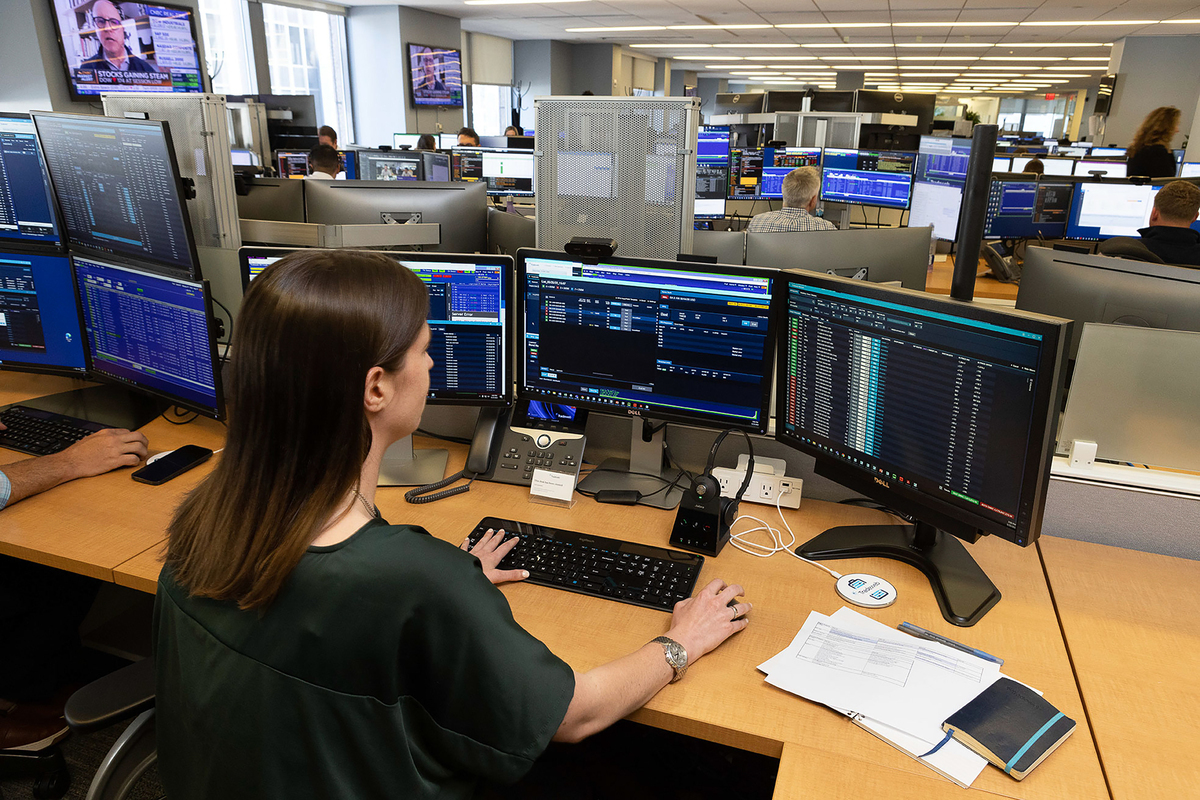Making progress on sustainable banking

Steve Round at SaaScada argues that, at COP28, banks must learn that a “fairtrade” approach to sustainability isn’t enough
COP28 has put green practices under the microscope. Climate finance has been very much at the heart of crunch talks at the UN summit, with most participants agreeing that any solution intended to accelerate the transition to clean energy is incomplete without private capital.
The reality is, the finance industry has barely moved on its sustainability progress. The first week of COP28 revealed that emerging markets and developing countries will need $2.4 trillion a year in investment for the world to realise the goals of the Paris Agreement; so we’re still at the foot of the mountain.
Here are four lessons banks must learn to make tangible progress on sustainability:
Green products can’t stay on the fringe of banking
Right now, there is little collaboration happening between banks on ESG. Almost every bank has developed niche green offerings and ESG policies, but none of the major players are making them a priority.
The reality is: most ‘green’ products from larger institutions are not making a dent in reducing environmental impact. Just look at green mortgages. Once heralded as a way to help the UK achieve net zero, years later these loans only amount to a mere 0.4% of total lending.
It’s like when you see ‘fairtrade’ products in the supermarket. Surely all products should be fairtrade, and we should be calling out the products that aren’t? Green banking needs to be mainstream, not some side project designed to tick the regulatory box.
With fringe green products not making a dent, and the regulator focused solely on risk and not change – progress is moving at a snail’s pace. Banks need to start taking matters into their own hands instead of waiting for governments or regulators to step in. But how can banks make a real impact?
No problem too big: setting clear and achievable targets
Banks reach almost every person on the planet and have a huge influence on which businesses get funding, putting them in a huge position of power to shape the sustainability agenda. COP meetings are always a significant platform for banking sustainability that shows the industry’s potential to do some good. But I’m a firm believer that if you make a problem too big, people ignore it.
We need to make sustainability feel like a tangible and real issue to make progress, and that means setting clear targets and making bold decisions.
If banks took green banking mainstream, and weaved sustainability into their core business model and loan origination process, they could encourage other organisations to make socially conscious and informed financial decisions. For example, choosing whether to apply for a loan to build new office space or buy existing properties based on the impact on the local ecosystem.
But to successfully put green products at the centre of banking, the industry needs to agitate, innovate, incubate, and mainstream. This means creating innovative green banking models that generate consumer demand and demonstrate a solid business case. For example, Ecology Building Society was created to put sustainable mortgages at the heart of its business. But to really move the needle, it’s up to financial institutions to follow suit and mainstream sustainable banking.
Data is the key to green banking
With the window to adapt to climate change rapidly closing,COP28 should have given banks the wake up call they needed to start mainstreaming sustainability and investing in ESG. But where should they start?
Firstly, detailed impact assessments for every product are a must, and these must be supported by data. This means re-architecting their core banking infrastructure, ensuring that they can improve access to sustainability data across all their offerings.
In addressing the issues of ESG banks should not forget the S in ESG - if banks want to make the significant change they can to climate change then they must deliver inclusive products and services that enable individuals and communities to deliver real impact.
By gaining access to real-time data, banks can better understand and track how investment and purchasing decisions affect the planet, allowing them to measure everything at a granular level. From the carbon footprint of daily purchases to the ESG impact of pension investments.
These assessments will help everyone in the financial ecosystem – from consumers to business owners and the wider supply chain – to make radical and rational choices that build a greener planet.
Take off the short-term blinkers to drive long-term success
COP28 has given sustainable banking a platform, now the responsibility is on financial institutions to take the short-term blinkers off and show some bravery in their approach to sustainability. If the green transition is not actively championed by banks, the world will fail to reach key climate and energy goals and change for the worse – affecting banks’ bottom line. After all, if financial hubs like Tokyo and surrounding areas disappeared below rising sea levels, it would wreak havoc on the banking world.
It’s not like banks can’t afford to take up the ESG mantle either. Big banks are making profits equivalent to £1,000 for everyone in England. Those interested in staying on top, and insulating themselves from long-term risk must be decisive, accepting a marginal hit on those enormous profit margins to develop greener operating models overall, and create a greener more social world in the process.
Banks impact every walk of life and should both be waging war on poverty - not on the poor - and delivering sustainable products to all, one transaction at a time.
Steve Round is Co-Founder of SaaScada
Main image courtesy of iStockPhoto.com

Business Reporter Team
Most Viewed
Winston House, 3rd Floor, Units 306-309, 2-4 Dollis Park, London, N3 1HF
23-29 Hendon Lane, London, N3 1RT
020 8349 4363
© 2025, Lyonsdown Limited. Business Reporter® is a registered trademark of Lyonsdown Ltd. VAT registration number: 830519543





